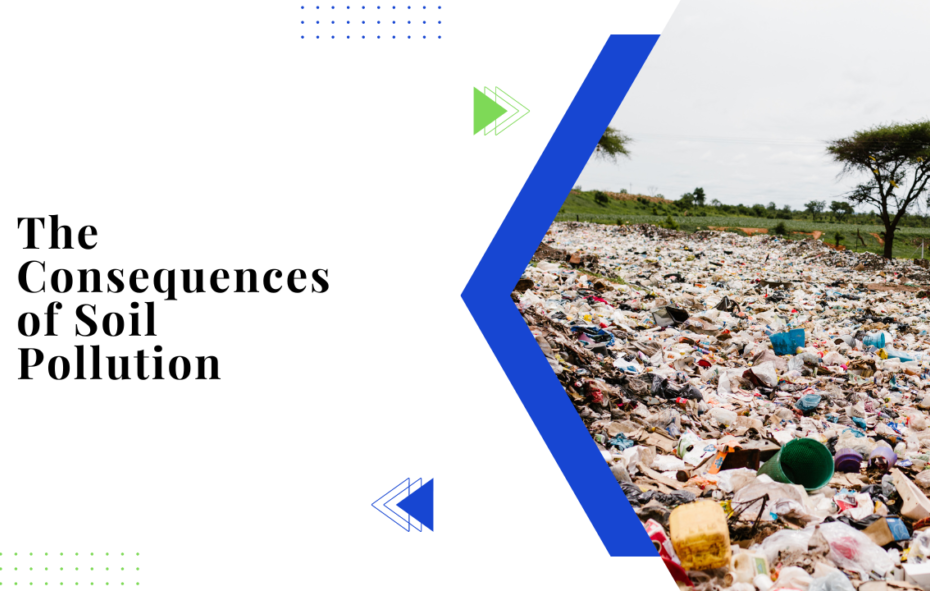Our livelihoods are directly dependent on soil. It is estimated that 95% of our food is produced in soil, either directly or indirectly. Without healthy soil, the food we eat, the water we drink, and the air we breathe, the health of all living organisms will be at risk. Soil is a finite resource that cannot be recovered very easily.
Landfills are designated areas of land where solid wastes are dumped. They are the most common means of solid waste disposal, which is either buried in the soil or left to pile on in heaps. With the increase in population, the number of landfills is steadily increasing globally. While some landfills are well managed by municipalities, most communities leave landfills unattended which causes land pollution and damage to our precious soil.
A landfill releases toxic chemicals into the surrounding soil with time, which causes the upper layer of the soil to be damaged. The upper layer of soil is essential for soil fertility. Thus, plant life is severely altered by landfill activity and ceases to exist in many cases as the soil loses all its fertility. Industrial and electrical waste in landfills also affects soil fertility which upsets the entire ecosystem on the land. These toxic chemicals also start affecting groundwater levels as rain pours over landfills. This groundwater reaches fresh waterways and eventually finds its way into our domestic water and farming. The pollution caused by landfills has severe consequences for both animal and plant life.
These toxic products in landfills range from used or half used or contaminated containers of industrial waste, paints, solvents etc to our everyday household products, such as cleaning agents. Electronic waste contains lead, mercury, and cadmium. Single-use plastics like water bottles, cutlery, and plastic bags also release harmful chemicals into the soil and the groundwater.
It is high time we acknowledge the impact of landfills on our soil and become more conscious about our everyday choices to ensure that the amount of waste we generate in our household can be reduced and we start living a more sustainable lifestyle.
References
- https://www.fao.org/fao-stories/article/en/c/1126974/#:~:text=Pollutants%20in%20soil%2C%20groundwater%20and,term%20chronic%20effects%2C%20like%20cancer.
- https://www.hindustantimes.com/mumbai-news/soil-pollution-from-kanjur-landfill-killing-fish-less-than-500m-from-flamingo-sanctuary/story-D2JTlJsPWYZp3qeBChF6eK.html
- https://sciencing.com/types-pollution-found-brownfields-22631.html
- https://www.conserve-energy-future.com/causes-effects-solutions-of-landfills.php#:~:text=Landfills%20directly%20render%20the%20soil,activity%20and%20affecting%20plant%20lie.
- https://www.slrecyclingltd.co.uk/what-are-the-negative-effects-of-landfill/
- https://www.ijert.org/landfill-emissions-and-their-impact-on-the-environment
